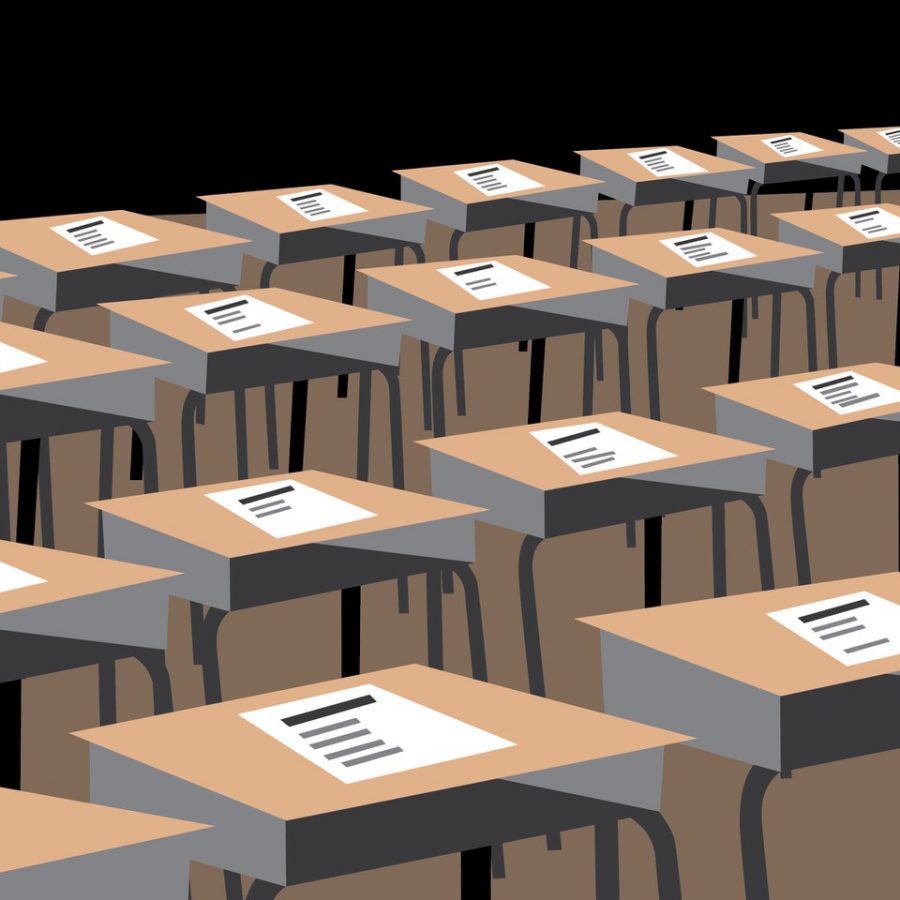It has become increasingly common for staff at the Disability Resource Center to find a sign on a colleague’s door warning them someone is taking a test inside.
The Senate Committee on Student Affairs is authoring a letter requesting the University of Minnesota address a recurring and intensifying issue for campuses’ disability resource centers: lack of adequate testing space.
The number of students requesting testing accommodations has been steadily increasing across all five system campuses. But on some campuses, disability resource centers are struggling to keep up, especially during high-demand times like midterms and finals. Staff routinely give up their offices so students can test in private.
DRC space varies across campuses. Duluth’s DRC is nestled in the multicultural center. Rochester’s has no dedicated space. The Twin Cities campus has the largest space, but demand for its services is high. The DRC administered 11,769 tests in 2018, up 108 percent from 2014.
“There’s a general increase in anxiety disorders. There are more students who are more willing to say ‘I have a disability,’ so stigma is reduced,” said DRC Associate Director Scott Marshall. “The number of times we’re giving our offices up so students can take exams in them is just increasing at the same pace.”
Students need private testing accommodations for a number of reasons that are decided on a case-by-case basis. Those with attention deficit disorder have difficulty maintaining focus and might require a private testing space without distractions, for example.
However, if someone isn’t in their office, they may be unable to take phone calls for a student who needs help, Marshall said.
“They can’t meet with staff because they’re not in their office and there’s no privacy,” he said. “There is, at times, a substantial burden on how the work gets done if we’re asking people not to be in their workspace.”
More faculty have put accommodation information in their syllabuses, and an increase in student mental health counseling has led to more referrals, said Emily Norenberg, director of Disability Resources at the University of Minnesota-Duluth.
Duluth staff started giving up their offices two years ago. Norenberg said they’ve been able to make it work without major disruptions.
“We can tread water for the next couple years using this ad hoc strategy. But if numbers keep continuing in the way that they are, we’ll need to put our thinking caps on,” she said.
Incoming SCSA Chair Cody Mikl said the committee decided to act after hearing from each campus’s disability resource center last fall.
“It’s easy to see how a student who needs testing accommodations might be harmed if the Disability Resource Center can’t find room for them,” he said.
Marshall said it’s common during busy periods that they ask students to come in at different times. “It’s only a matter of time until we have to turn somebody away and say ‘I’m sorry, we don’t have space for you here,’” he said.
Marshall said the DRC started renting space around campus over the last few years, including booking the entire second floor of the Graduate Hotel during finals. He said the DRC outgrew its suite “long ago.”
They’ve been working with the University Real Estate Office to find more space, but conversations have stalled.
“We’re probably not going to find enough space to get ourselves out of this,” said Marshall. “The University needs to address this space issue in the shorter term. But it also needs to address the larger question about how exams disable some students.”
Not all campuses are pressed for space. The University of Minnesota-Crookston opened a new community testing center last year. Crookston’s DRC Director Gail Myers said they can easily seat the 600 to 800 exams they coordinate yearly.
Jeff Baier, disability resources coordinator at the Rochester campus, also said space isn’t an issue.
“Classrooms are not always classrooms,” he said. “We always try to find a space or location that works. Sometimes it happens to be my office.”
















